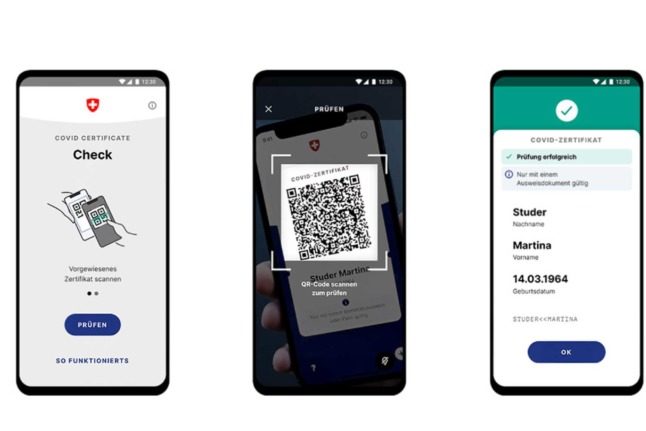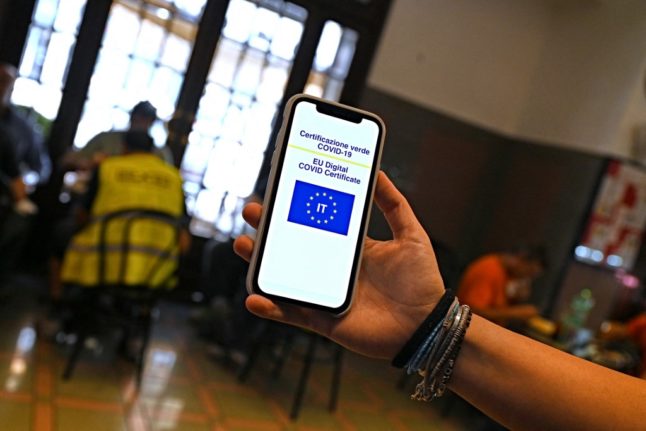Despite efforts to the contrary, mistakes in official documents are relatively common.
And while a different maiden name or a misspelt middle name may not be such an issue in daily life, it can be increasingly problematic with regard to Switzerland’s Covid Certificate.
The reason for this is that the certificate must perfectly match the information on your ID when it is inspected.
UPDATED: How to get Switzerland’s Covid-19 health pass
From immigration officials to airline staff and event operators, everyone checking the Covid Certificate has been told by the Swiss government to make sure the certificate corresponds to the person presenting it.
Swiss media has reported on several incidents of people who have been refused entry on the basis of inconsistent details, which is a hell of a way to spoil that post-pandemic trip.
One such incident involved an inconsistency in a woman’s date of birth based on mixing up the day and the month column, with her actual birthday of July 10th being confused with October 7th.
In some instances the mistakes have come when the certificate is issued, while in other instances the details presented are inconsistent with a person’s ID (i.e. in the case of maiden names, middle names not appearing on one certificate, etc).
How do I correct an error in my Swiss Covid Certificate?
As is laid out on the Swiss government website, if the information does not match then you should contact the place of issue.
However, in practice – and as with almost everything in Switzerland – this differs from canton to canton and has therefore been shown to be difficult.
We’ve laid out the rules in some of the largest cantons below.
If your canton does not appear below, please contact cantonal authorities in your Swiss canton using the following link.
Zurich
The cantonal government in Zurich has set up an online form which can be used to report errors.
You will need to have your Covid Certificate along with a digital photo of your ID which can be uploaded.
Geneva
In Geneva, you can request a new certificate by filling out the appropriate form.
This is only possible in French and you will need your mobile number.
Bern
In Bern, you can use the following form to contact the vaccination centre and have a new certificate drawn up.
You will need to have a digital photo of your ID with you.
If you were vaccinated at a GP or a pharmacy, you will need to visit that GP or pharmacy in person.
Basel
In Basel City, you need to contact the place in which you got the vaccine.
There is no official form – you simply need to contact the vaccination centre or other medical facility to discuss the issue with them and have a new certificate issued.
In Basel Country, send a copy of your ID via email and you will have a new certificate issued within 24 hours.
Zug
Anyone in Zug will need to call the cantonal hotline on 041 531 48 90 – or contact the canton online – in order to have the certificate replaced.
According to Swiss broadcaster SRF, replacement certificates tend to be issued immediately, but if they are not then an in-person meeting can be organised.



 Please whitelist us to continue reading.
Please whitelist us to continue reading.
Member comments